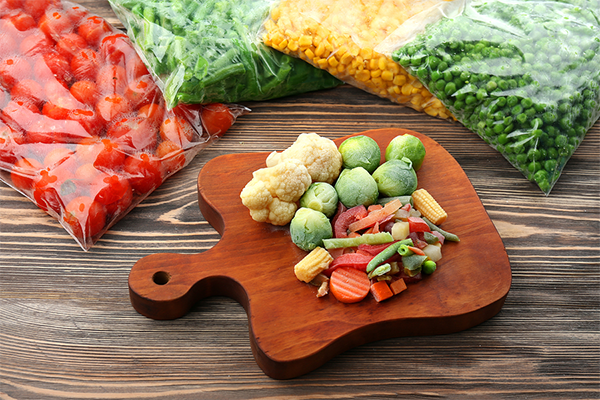Do you have a favorite fruit or vegetable that you want to eat throughout the year? You can always freeze your favorites now and enjoy them months down the line. Follow these guidelines when freezing produce for the best results:
- Vegetables that need to be cooked tend to freeze well. Others such as cucumbers, lettuce and tomatoes lose their crispness when frozen.
- Fruits that are frozen tend to keep their flavor but can have a softer texture when thawed. Use only fully ripe fruit for the best results.
- Use moisture- and vapor-resistant containers to prevent the loss of liquid and flavor, or use plastic bags designed for the freezer.
- Limit the amount of frozen produce to about one-half gallon per container.
- Pack food tightly to reduce the amount of air in the package, which can pull moisture from the produce.
- Store at 0º F for best quality.
- Fruit can be thawed in the fridge, under cold running water or in a microwave (if it will be consumed immediately after). Vegetables should be cooked without thawing, except corn on the cob and leafy greens, which should be partially thawed.
After thawing, enjoy the (literal) fruits of your labor with delicious fruit smoothies, pies, casseroles — whatever you can think of!
To learn how to select the right types of food in the right portions for optimal heart health, call 706-721-8637 to make an appointment to meet with a dietitian.





